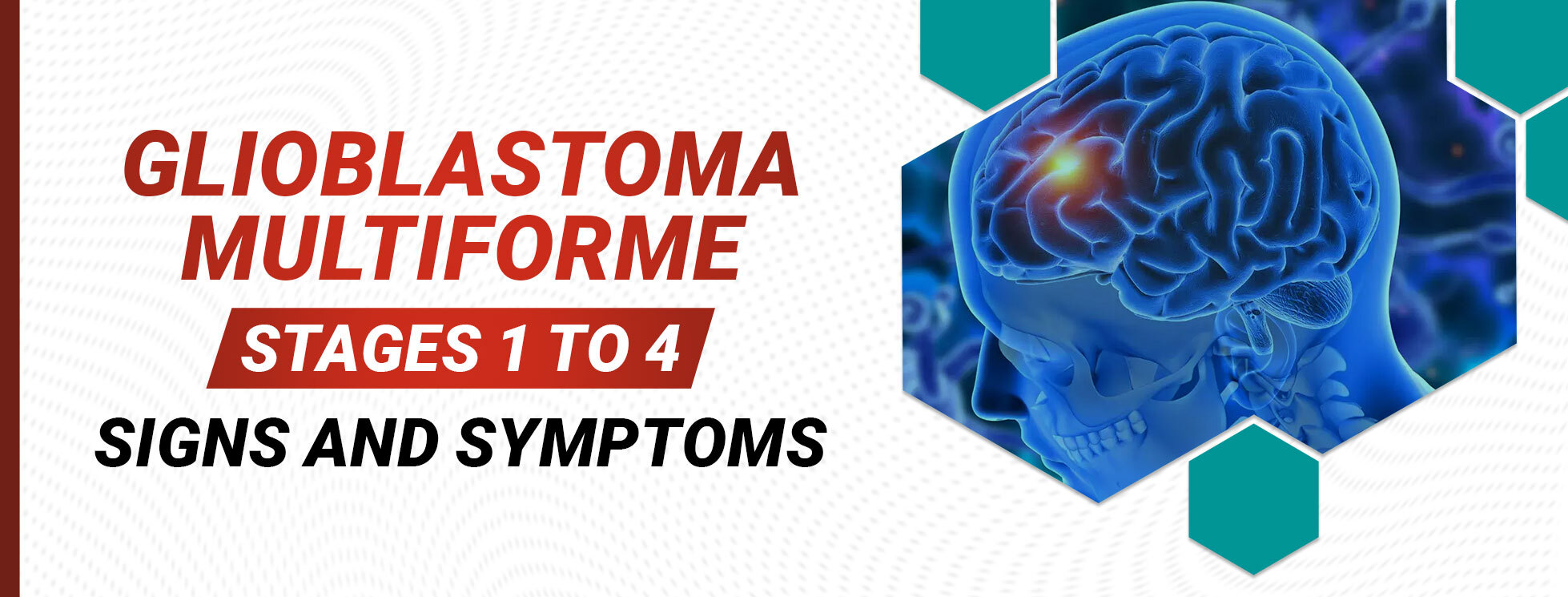Glioblastoma Multiforme: Signs, Symptoms, And Treatment
Glioblastoma multiforme is a type of cancer that occurs in the brain. Glioblastoma multiforme is known for growing rapidly from stage 1 to 4 with increasing signs and symptoms. It is one of the most commonly prevalent brain tumors in adults all around the world. Glioblastoma multiforme can occur in any part of the brain but more cases are observed in frontal and temporal lobes in the brain.
Like most cancers, Glioblastoma Multiforme is classified into four different stages, based on the tumor size and how far it has spread, and how much impact it has caused on the patient’s overall health.
Stage 1 of Glioblastoma Multiforme
This is the starting stage of the tumor. In this stage, the tumor is very small to small and has not yet spread to other parts of the brain.
It is highly possible as observed in the majority of the cases that the patient may have no symptoms or only mild symptoms, such as headaches, nausea, and vomiting.
Stage 2 of Glioblastoma Multiforme
In this stage, the tumor is growing and has become quite larger than in stage 1. It has started to spread to a small area inside the brain.
In stage 2 of glioblastoma multiforme severity level of the stage 1 signs and symptoms increases. The patient endures severe forms of symptoms like seizures, weakness on one side of the body, and experiences difficulty in speaking.
Stage 3 of Glioblastoma Multiforme
In stage 3 the tumor is rapidly growing and has become larger than in stage 2 and has now spread to a large area of the brain.
With the growing tumor, the signs and symptoms of the glioblastoma multiforme also increase along with the severity level. The patient may experience symptoms such as difficulty in walking, loss of vision, and personality changes.
Stage 4 of Glioblastoma Multiforme
Until stage 4, the tumor has spread to other parts of the brain and/or has spread to the spinal cord as well. Under this scenario, the patient will experience extreme situations like a coma and/or paralysis.
Signs and Symptoms of Glioblastoma Multiforme
As it is clear from above the signs and symptoms of glioblastoma multiforme can differ depending on the stage of cancer or tumor a person is at. Not just the size, the patient’s signs, and symptoms can vary and are affected by the location of the tumor as well.
Some of the most common signs and symptoms of glioblastoma multiforme are as follows:
- Headaches with varying severity
- Nausea and Vomiting
- Seizures
- Weakness/numbness occurring in one side of the body
- Difficulty in speaking or understanding speech
- Problems in eyesight/vision
- Changes in personality and behavior
- Difficulty in walking
- Forgetting things frequently or memory loss
- Fatigue and tiredness even after proper rest.
Diagnosis of Glioblastoma Multiforme
In order to diagnose glioblastoma multiforme, a combination of tests are performed. Following are the tests that are used for diagnosing glioblastoma multiforme:
- Physical Examination
- Imaging through MRI (Magnetic Resonance Imaging)
- Scans such as CT (Computerized tomography) scan
- PET (Positron Emission Tomography) scan
- Biopsy.
Treatment for Glioblastoma Multiforme
The treatment for glioblastoma multiforme largely depends on the stage of the tumor and the overall health of the patient. In some cases, for example in the case of earlier stages, the tumor is easily treatable. Some of the treatment options available for getting rid of glioblastoma multiforme tumor are:
- Surgery to remove as much of the tumor as possible
- Radiation therapy
- Chemotherapy
- Targeted therapy
- Immunotherapy
Conclusion
Glioblastoma multiforme is an aggressive type of brain cancer. Detection of glioblastoma multiforme is very poor, especially in the early stages. The average survival time for patients suffering from glioblastoma multiforme is of around 15 months. With modern advancements, there are new treatments available and there is hope that the prognosis will get better in the future.
In case you are experiencing any of the signs or symptoms of Glioblastoma multiforme, it is crucial to consult your doctor immediately. Or else you can also visit Vydehi Cancer Center at Whitefield in Bangalore. It is one of the best places for affordable cancer treatment.

